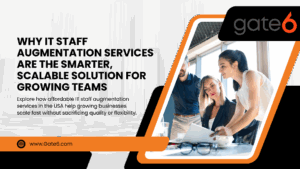Top 6 Data Integration Challenges and How to Overcome Them

Integrating diverse systems is a critical task for any organization aiming to streamline operations and improve decision-making. However, the process is often fraught with challenges such as compatibility issues, data security concerns, scalability problems, data quality inconsistencies, complex processes, and change management hurdles. These challenges can disrupt operations and hinder growth. Here are the top six data integration challenges and strategies to overcome them:
1. Scalability Issues
As businesses grow, their data integration needs become more complex. Scalability issues often arise when existing integration solutions cannot handle increased data volumes, new data sources, or higher transaction loads. This can lead to performance bottlenecks, delayed processing times, and reduced system efficiency.
Solution: Designing scalable solutions is essential for handling growth efficiently. Start by using cloud-based platforms that offer scalable resources, such as storage and computing power, on demand. Additionally, employ load-balancing techniques to distribute workloads evenly across servers, ensuring that no single point becomes a bottleneck. Gate6 recommends leveraging scalable, cloud-native solutions to accommodate growth without compromising performance.
2. Compatibility Issues
One of the most common challenges in data integration is ensuring compatibility between diverse systems. Different systems often use varying data formats, communication protocols, and technologies, making it difficult to share data seamlessly.
Solution: Use middleware to bridge the gap between incompatible systems. Middleware acts as a translator, converting data formats and protocols into a standardized form that different systems can understand. Standardizing APIs is another effective strategy that facilitates smoother integration by providing a common language for data exchange. At Gate6, we help organizations implement middleware and API management solutions that ensure compatibility and efficient data flow.
3. Data Security and Privacy
Data security and privacy are paramount, especially when integrating sensitive data from multiple sources. Data breaches and unauthorized access can result in significant financial losses and damage to an organization’s reputation. Additionally, organizations must comply with regulations such as HIPAA, GDPR, and others.
Solution: To protect data and ensure compliance, encrypt data both in transit and at rest. Implement robust access controls that restrict data access based on user roles and permissions. Regular security audits are also essential to identify vulnerabilities and enhance security measures. Gate6 provides tailored security solutions that incorporate these best practices, helping you safeguard your data against potential threats.
4. Change Management
Change management is often overlooked but is crucial to the success of any data integration project. Resistance from employees, lack of clear communication, and inadequate training can impede integration efforts and delay project timelines.
Solution: Engage stakeholders early in the process to gain their buy-in and support. Provide comprehensive training and ongoing support to help employees adapt to new systems and processes. Clear communication about the benefits of integration can also help alleviate concerns and foster a positive attitude toward change. Gate6 emphasizes a proactive change management approach, ensuring a smoother transition and higher adoption rates.
5. Data Quality and Consistency
Data integration often involves merging data from multiple sources, which can lead to inconsistencies, duplicates, and inaccuracies. Poor data quality can result in unreliable reports, flawed decision-making, and lost revenue opportunities.
Solution: Implement data validation and cleansing processes to identify and rectify errors before data is integrated. Using Master Data Management (MDM) tools helps maintain data consistency across different systems by creating a single, authoritative source of truth. Gate6 supports organizations in establishing strong data governance frameworks to ensure high-quality, consistent data.
6. Complexity and Cost
Data integration projects can be complex and costly, especially when dealing with multiple systems, large data volumes, and sophisticated workflows. High upfront costs and extended timelines can discourage organizations from pursuing integration initiatives.
Solution: Adopt an incremental integration approach, which allows you to start small and expand gradually, reducing initial costs and complexity. Consider using cost-effective integration Platform as a Service (iPaaS) solutions that offer flexibility and scalability at a lower cost. Open-source tools can also be viable options for organizations with limited budgets. Gate6 provides customized integration solutions that balance cost, complexity, and performance, helping you achieve your goals without overspending.
Conclusion
Data integration is essential for organizations seeking to drive innovation and boost operational efficiency. However, challenges such as scalability, compatibility, data security, change management, data quality, and complexity must be addressed to ensure successful integration. Gate6, a trusted healthcare software development company, offers a comprehensive suite of services to help you overcome these challenges, streamline processes, enhance security, improve data quality, and manage changes effectively.
Ready to tackle your data integration challenges and unlock new opportunities for growth? Contact us today and discover how Gate6 can help you achieve seamless, efficient integration tailored to your unique needs. Let’s innovate together!
Relevant Posts
December 5, 2024
Thrive with E-Commerce in a Competitive Market
October 25, 2024
Maximizing ROI with IT Services and Consulting
October 9, 2024
Emerging Trends in System Integration: Part 2
October 3, 2024






